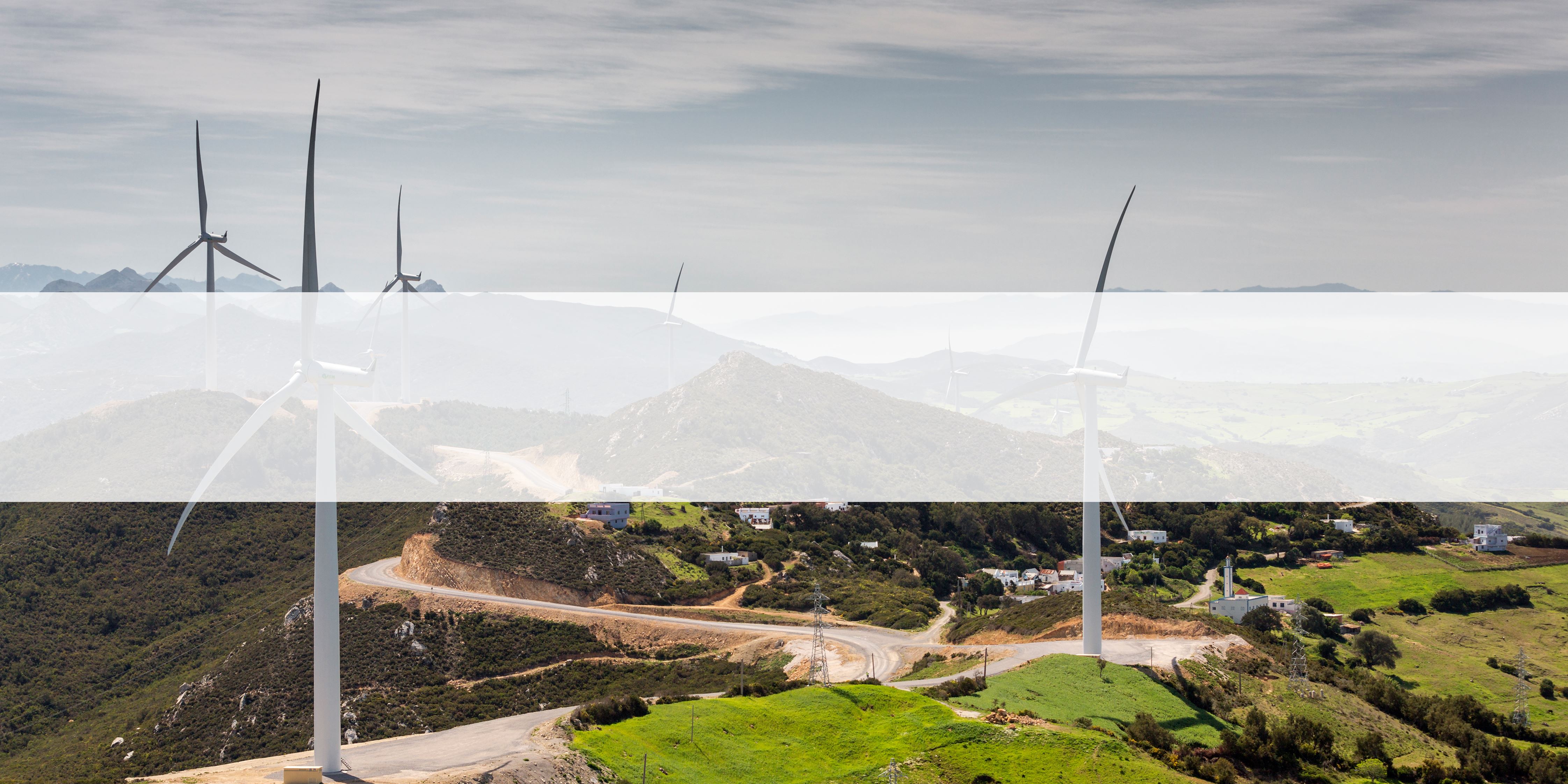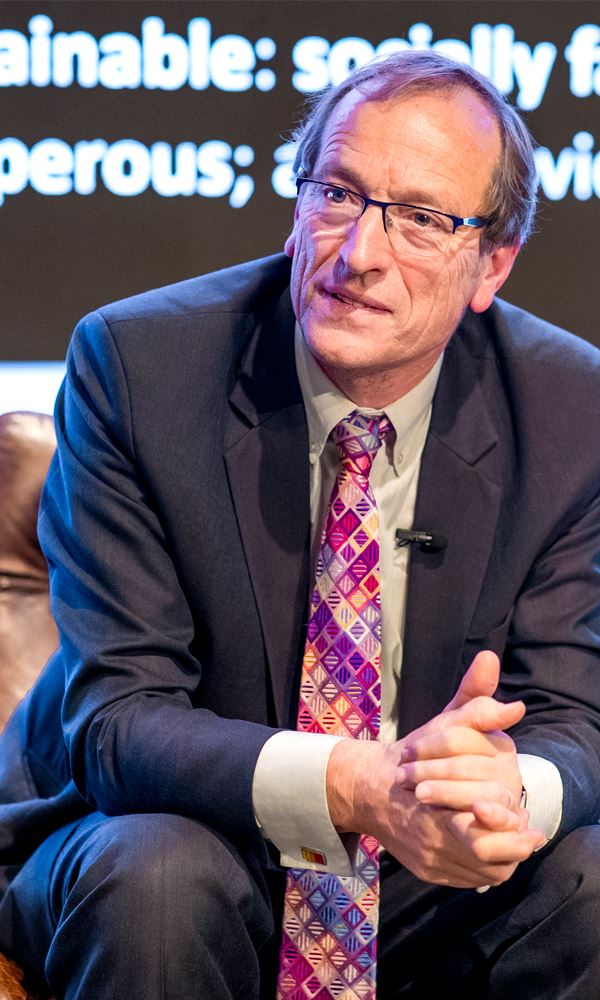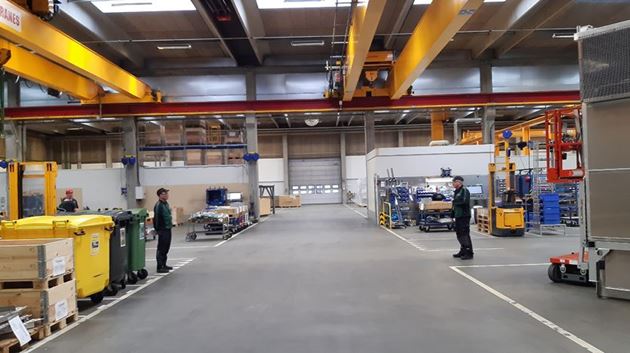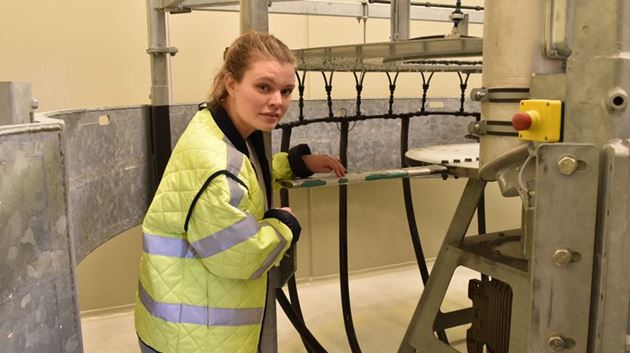
"Taking care of everything that surrounds us is the foundation for success for the top companies"
5 May 2020
Can a stewardship mindset unlock the potential of companies to tackle climate change? The role of business in tackling the climate challenge is critical. Companies have been instrumental in economic and social progress, and yet many have also fuelled problems, from climate impacts, and air pollution, to digital manipulation, and the invasion of privacy. In many parts of the world, there are demands for government action to restrain greed, irresponsibility and short-termism. But there are positive solutions that business can take.
Do you need further information or have specific questions around our press and media activities? Please contact us. We will be happy to take care of your request.
mediarelations@siemens-energy.com +34 944 03 73 52Corporations are more aware than ever before of the important roles they play in communities and nations; many more of them are choosing to become ‘stewards.’ Stewardship means that to manage, nurture and grow what we have been given so that we hand it over in a better condition to the next generation. In the business context, the stewardship approach can drive long-term thinking for business leaders, boards and investors alike, rather than the pursuit of short-term profits.
But what does good corporate stewardship look like? One example would be the UK-based brewer Adnams.
Established in 1872 and now part-listed, Adnams is part-family and part-employee owned. It has cut carbon emissions by 48% since 2008 and cut its water usage by 1million litres each year through its distribution centre’s green roof. Adnams invested in a system that exchanges heat from the water-cooled condensing process in its distillery and passes that heat on to warm up the brewing liquor for the brewery to use. This saves 10% energy and 85% of the water needs in the distillery, and further reduces total energy demand. All electricity used in making spirits and beers is from 100% renewable sources.
Inspired by the concept of stewardship, Mark Goyder and his co-author Ong Boon Hwee wrote, Entrusted: Stewardship for Responsible Wealth Creation. In it they argue that if our societies are to be set on a less damaging course, we will need every ounce of human ingenuity –– the inventiveness of entrepreneurs, the dynamism of companies, the adaptability of markets.

To delve deeper into this concept and how it can help guide businesses, we spoke to Mark in his role as the author of Entrusted and the founder of Tomorrow’s Company.
Q: You talk about the concept of stewardship, what does that mean? And what does it mean for how businesses approach climate change?
A: To me stewardship is best described by a native American proverb: we do not inherit the world from our ancestors; we borrow it from our children. It is the simple but vital idea that what we have around us is precious: it has been passed on to us by those who came before and we are entrusted with its care. I see this idea at work in the best and most enduring companies. Far from finding this sense of obligation and service to others an obstacle, they see it as the foundation of success.
Q: Why are businesses critical in the fight against climate change?
A: For both negative and positive reasons. Negatively, because progress cannot come until businesses choose, or are forced, to stop producing damaging carbon emissions. Positively, because entrepreneurial flair and market disciplines are the fast track to innovation and solutions such as renewable energy batteries or hydrogen-powered vehicles.
A: It’s important to unpack that word ‘investors’. There’s a long investment chain. At one end it’s you and I with our savings and insurance policies. Then there are pension trustees and intermediaries to whom we entrust money. As consumers, ordinary citizens can send clear messages defining the activities or the type of companies to which we do or don’t want our money to go to. We can indirectly set a timescale by the investment products we choose. Responsible investments can take longer to pay back. Investment companies are starting to offer stewardship options through which we can get a financial payback through investments that build a better world. The growth of impact investing is part of this.
Q: What characteristics of today’s business world need to change to successfully mitigate climate change?
A: The COVID 19 crisis is forcing change in this direction. More emphasis on local supply and community resilience. Abandon the quarterly capitalism mentality that limits you to low-risk investments with three-year paybacks. Stop massive shareholder buybacks and build some reserves. Have the courage to choose a purpose and direction, and invite investors who don’t like it to take their investment elsewhere. Have a clear and enduring purpose that makes you a force for good in society and, if you stick to it, the rewards will follow in terms of customer loyalty, employee retention, public trust and, in time, profitability. Think ‘long-term greedy’.
Q: What should the boards of businesses be doing this year to ensure that climate change doesn't fall off the business agenda, particularly in light of COVID-19?
A: Think in terms of cycles and circular economy. Promote innovation. Learn from competitors and other industries. Show your commitment to your employees and mobilise their ideas to improve your carbon performance. Set science-based targets. Measure and publish your impacts. Shift to renewable energy. Incentivise suppliers to reduce their emissions. Rethink your logistics to minimise air miles.


